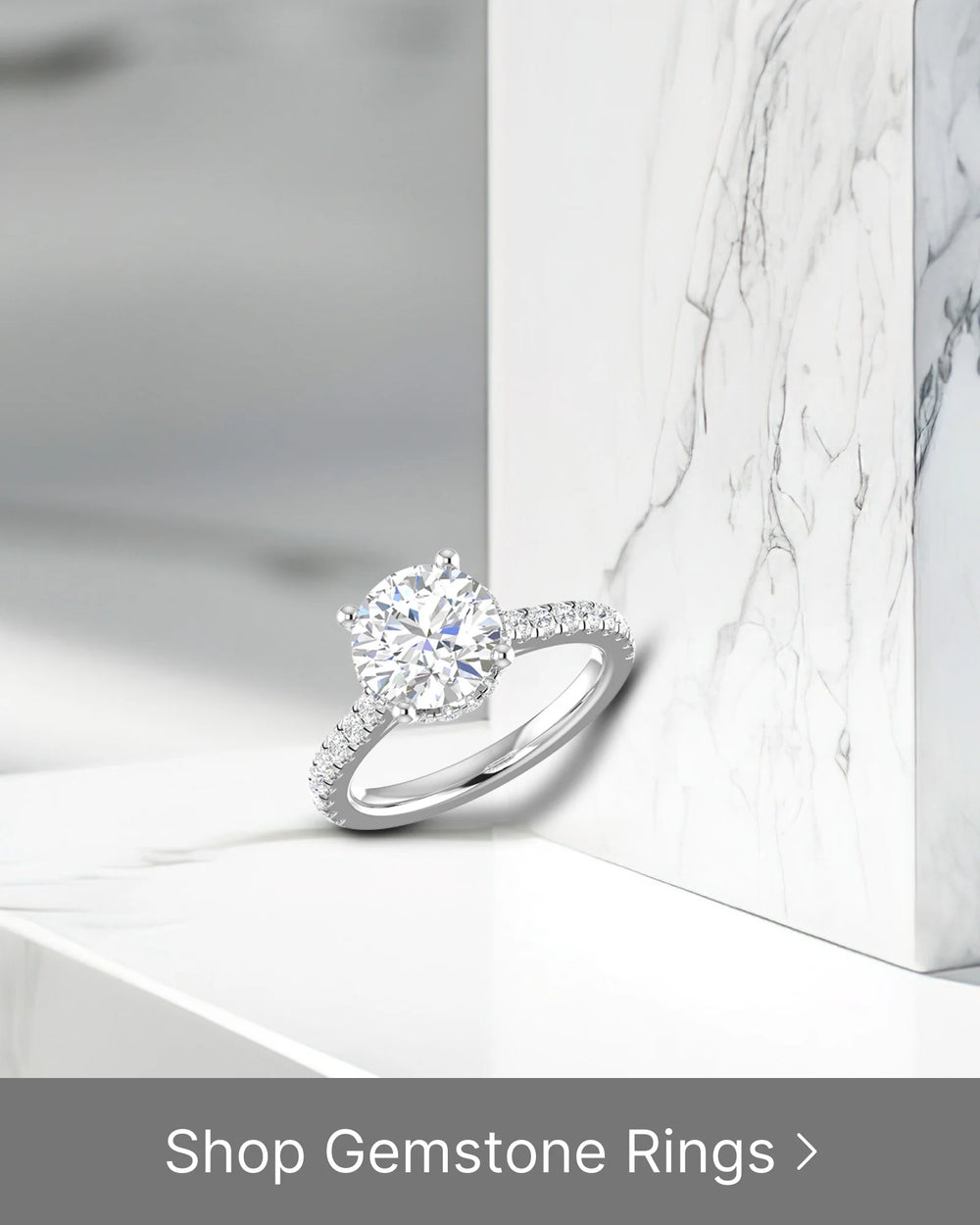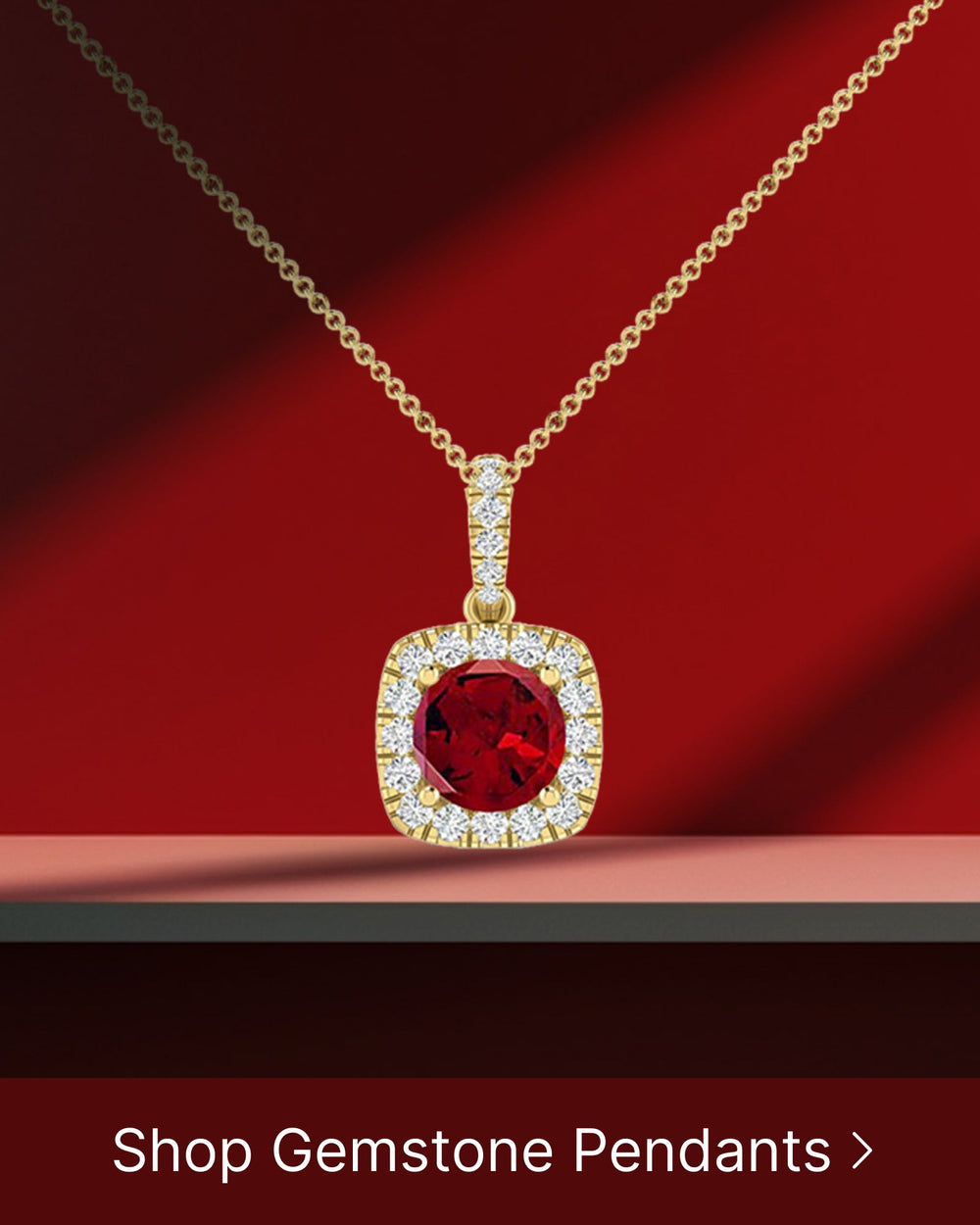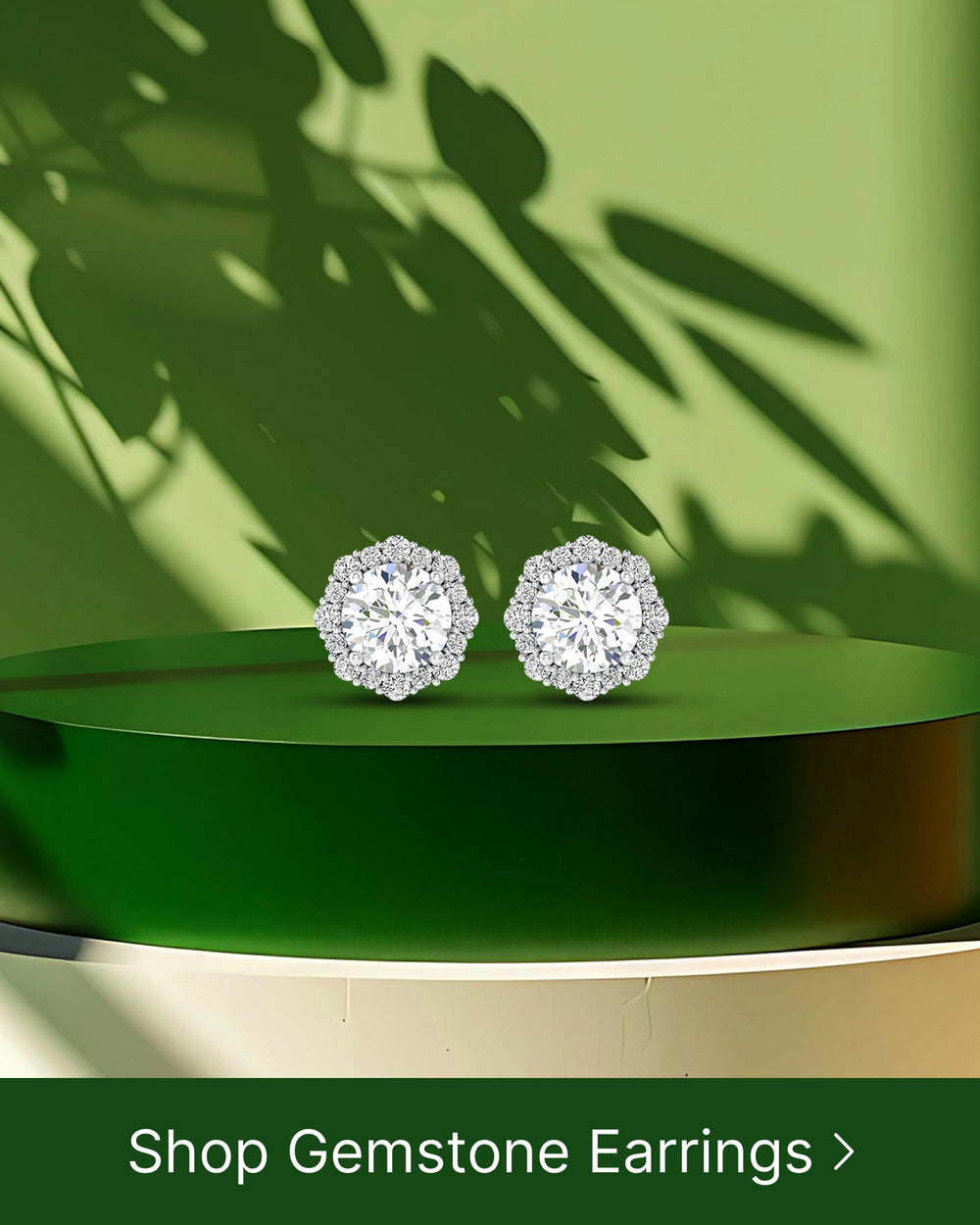Looking for a diamond substitute that fits your budget? Well, you're in luck because there are plenty of options available! Whether you're looking for a more affordable alternative or want to make a conscious decision due to ethical concerns, understanding diamond substitutes is crucial. In this article, we'll explore different types of diamond substitutes, factors to consider when choosing one, and how to take care of your chosen alternative.
Understanding Diamond Substitutes
What exactly is a diamond substitute? A diamond substitute is a gemstone or material that closely resembles a diamond but is not a natural diamond itself. These alternatives offer a similar sparkle and brilliance at a fraction of the cost. Additionally, diamond substitutes can be chosen for ethical reasons, as they may be more environmentally sustainable or conflict-free.
But why choose a diamond substitute in the first place? There are several reasons why individuals opt for alternatives to diamonds. First and foremost is the price. Natural diamonds can be quite expensive, making them inaccessible to those on a tight budget. Diamond substitutes offer a more affordable option while still maintaining a beautiful appearance.
Another reason to consider diamond substitutes is their versatility. While diamonds are typically colorless, substitutes come in a wide range of colors, allowing individuals to choose a stone that matches their personal style and preferences. Whether it's a vibrant blue sapphire or a deep red ruby, these alternatives offer a unique and customizable option for those seeking something different.
Furthermore, diamond substitutes often have unique properties that set them apart from natural diamonds. For example, moissanite is a popular diamond alternative that has a higher refractive index than diamonds, resulting in a greater brilliance and fire. This means that moissanite can actually outshine a diamond in terms of sparkle and shine.
Additionally, some diamond substitutes are more durable than natural diamonds. For instance, cubic zirconia, a synthetic material commonly used as a diamond simulant, is incredibly hard and resistant to scratches. This makes it an excellent choice for everyday wear, as it can withstand the rigors of daily life without losing its luster.
When it comes to ethical considerations, diamond substitutes offer a compelling alternative. Natural diamonds are often associated with ethical concerns, such as environmental damage caused by mining or the issue of conflict diamonds, which are mined in war zones and used to finance armed conflicts. By choosing a diamond substitute, individuals can support more sustainable and responsible practices in the jewelry industry.
It's important to note that while diamond substitutes offer many advantages, they may not be suitable for everyone. Some individuals may prefer the prestige and symbolism associated with natural diamonds, while others may have specific cultural or traditional reasons for choosing a diamond. Ultimately, the decision between a diamond and its substitutes is a personal one, based on individual preferences, values, and budget.
Factors to Consider When Choosing a Diamond Substitute
When deciding on a diamond substitute, there are a few key factors to consider. Making an informed choice will ensure you find the perfect gemstone or material that meets your needs and preferences.
Quality and Durability
The quality and durability of a diamond substitute are essential considerations. While diamonds are known for their exceptional hardness, there are other gemstones and materials that can offer similar durability. For example, moissanite is a popular diamond substitute that ranks high on the hardness scale, making it resistant to scratches and chips. Additionally, cubic zirconia is another durable option that closely resembles the brilliance of a diamond. Exploring these alternatives can provide you with a range of options that can withstand daily wear and tear.
Furthermore, it's important to consider the overall quality of the diamond substitute. Look for substitutes that are well-cut and have excellent clarity and color. These factors contribute to the gemstone's overall beauty and can enhance its resemblance to a diamond.
Price Range
Another crucial factor to think about is the price range. While diamonds can be quite expensive, diamond substitutes offer a more affordable option without compromising on quality. Determine what your budget is and explore substitutes that fall within that range. Moissanite and cubic zirconia, for example, are known for their affordability compared to natural diamonds. By considering the price range, you can find a diamond substitute that not only meets your aesthetic preferences but also aligns with your financial goals.
It's worth noting that the price of a diamond substitute can vary depending on factors such as size, cut, and overall quality. Take the time to compare prices and evaluate the value you're getting for your investment. This way, you can make a well-informed decision and find a diamond substitute that offers the best combination of affordability and quality.
Ethical Considerations
If ethical concerns are important to you, make sure to choose a diamond substitute that aligns with your values. The diamond industry has faced scrutiny due to issues such as conflict diamonds and environmental impact. By opting for substitutes that are laboratory-grown or ethically sourced, you can ensure that your purchase is conflict-free and doesn't contribute to environmental harm.
Laboratory-grown diamonds, for example, are created in controlled environments using advanced technology. These diamonds have the same physical and chemical properties as natural diamonds but are produced without the environmental and ethical concerns associated with mining. Similarly, gemstones like moissanite and cubic zirconia are synthetic alternatives that offer a sustainable and ethical choice for those seeking diamond substitutes.
By considering the ethical implications of your diamond substitute, you can make a conscious decision that reflects your values and contributes to a more sustainable and responsible jewelry industry.
Popular Diamond Substitutes
When it comes to choosing a diamond substitute, there are several factors to consider. From affordability to durability, each alternative offers its own unique qualities. Let's explore some popular alternatives in more detail.
Cubic Zirconia
Cubic Zirconia is perhaps one of the most well-known diamond substitutes. This synthetic gemstone closely resembles a diamond, mimicking its brilliance and sparkle. It is made from zirconium dioxide and is often optically flawless, making it a popular choice for those seeking an affordable alternative to diamonds.
One of the advantages of cubic zirconia is its affordability. Compared to diamonds, cubic zirconia stones are significantly less expensive, allowing individuals on a budget to enjoy the look and feel of a luxurious gemstone without breaking the bank.
However, it's important to note that cubic zirconia is not as durable as a diamond. Over time, it may become scratched or lose its luster. Despite this, cubic zirconia remains a popular choice for costume jewelry, engagement rings, and other accessories.
Moissanite
Moissanite is another excellent option for a diamond substitute. This gemstone is composed of silicon carbide and is nearly as hard as a diamond, making it highly durable. It was first discovered in a meteor crater and later synthesized for use in jewelry.
One of the standout qualities of moissanite is its exceptional clarity and fire. When light enters a moissanite stone, it is refracted and dispersed, creating a stunning display of colors. This optical property, known as fire, is highly sought after by those who desire a brilliant and eye-catching gemstone.
Moissanite is also more affordable than diamonds, making it an attractive choice for those who want a high-quality gemstone without the hefty price tag. With its durability, brilliance, and affordability, moissanite has gained popularity as a diamond alternative for engagement rings and other fine jewelry pieces.
White Sapphire
For those seeking a natural gemstone alternative to diamonds, white sapphire is an excellent choice. White sapphire is a variety of corundum, the same mineral family as rubies and sapphires. It is prized for its brilliance, clarity, and overall beauty.
Compared to cubic zirconia and moissanite, white sapphire offers a more ethical choice for those concerned about the environment or conflict minerals. Being a natural gemstone, white sapphire is not created in a laboratory but is instead mined from the earth.
While white sapphire may not be as affordable as cubic zirconia, it still offers a more cost-effective option compared to diamonds. Its natural beauty and durability make it a popular choice for engagement rings and other fine jewelry pieces.
When considering white sapphire as a diamond substitute, it's important to note that it has a slightly different appearance. While diamonds are known for their white brilliance, white sapphires may exhibit a subtle blue or gray undertone. However, this unique characteristic adds to the charm and individuality of each stone.
So, whether you opt for cubic zirconia, moissanite, or white sapphire, each diamond substitute offers its own set of advantages and characteristics. From affordability to durability and ethical considerations, these alternatives provide a range of options for those seeking a stunning and meaningful gemstone.
Caring for Your Diamond Substitute
Once you've chosen the perfect diamond substitute, it's important to take good care of it to ensure its longevity and beauty.
Cleaning and Maintenance
Regularly clean your diamond substitute using mild soap and warm water. Avoid using harsh chemicals as they may damage the stone. Gently scrub the gemstone with a soft brush, rinse it thoroughly, and pat it dry with a clean cloth.
Regular Check-ups and Repairs
Just like with natural diamonds, it's recommended to have your diamond substitute checked regularly by a professional jeweler. They can inspect the setting and make any necessary repairs to ensure your gemstone stays securely in place.
Making the Final Decision
When it comes to making the final decision on a diamond substitute, it's crucial to assess your personal needs and preferences.
Assessing Your Personal Needs and Preferences
Consider factors such as your budget, lifestyle, and values. Determine what matters most to you and choose a diamond substitute that aligns with your priorities.
Consulting with a Jeweler
If you're still unsure which diamond substitute to choose, consider consulting with a knowledgeable jeweler. They can provide expert guidance based on your specific requirements and help you find the perfect alternative within your budget.
With these considerations in mind, you're ready to embark on your search for the ideal diamond substitute. Remember, finding the perfect alternative is all about striking the right balance between quality, affordability, and personal values. Happy shopping!






